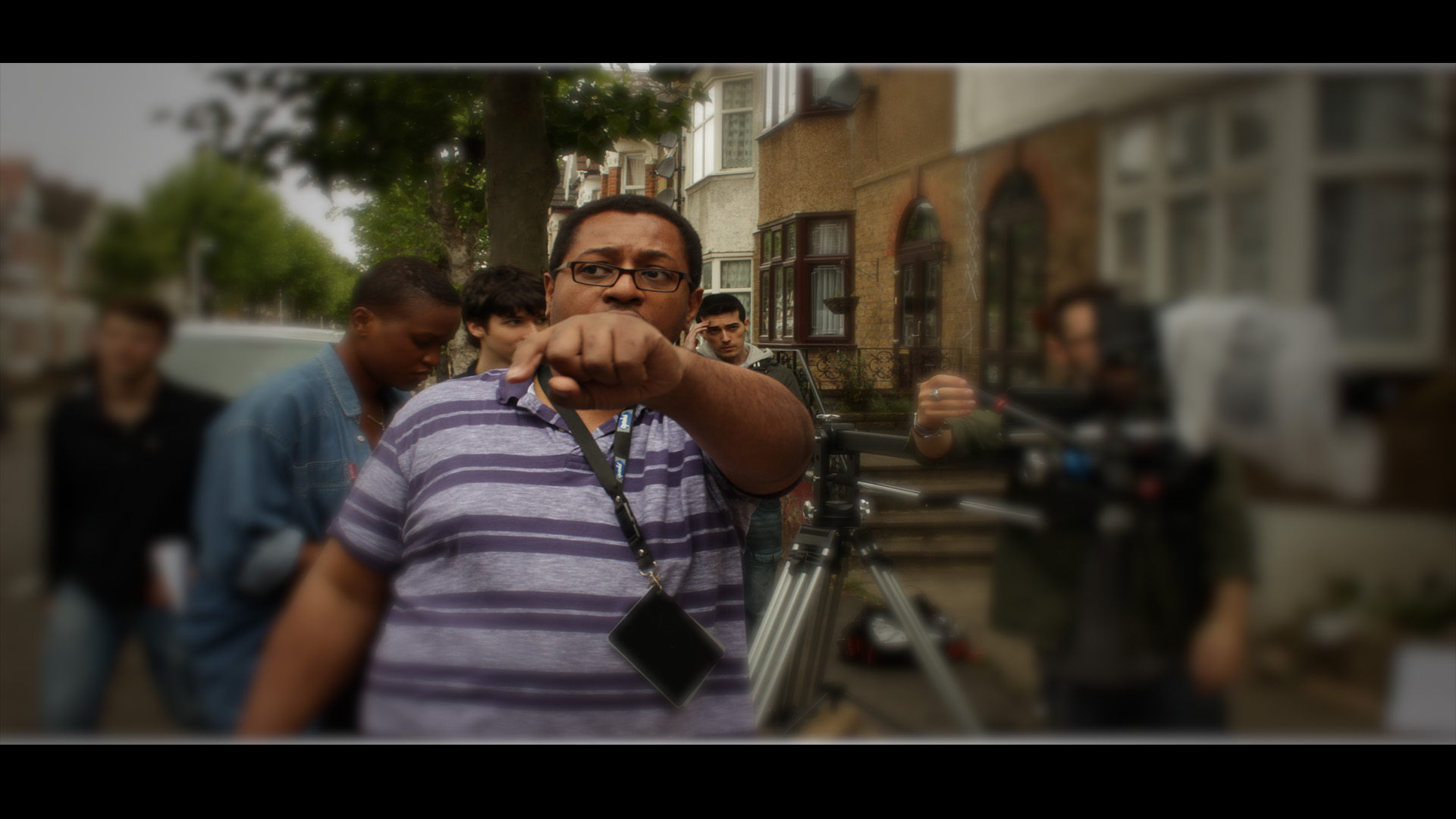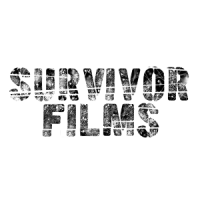ASK & DISCUSS
INDEXFocus group Help?
11 years, 4 months ago - Clement Ofoedu
Hi.
I'm close to finishing an initial cut of my first micro budget self funded feature length film.
It's a spooky drama, specifically written to have an absence of gore and excessive violence and explicit foul language. but a moral message. It's Akin to something you could have watched many years ago when society was perhaps less jaded
.
I wish to carry out a small focus group test before finalization of the cut. and I am wondering if anyone here has carried out something similar.
I am trying to avoid peer critique, because it can be misleading and ultimately its the audience that's important, and how they view the film. I also wish to avoid you-tube , because its generally populated by trolls. or Vimeo because its populated by filmmakers. I know that sounds odd but that's my objective
I am considering pooling some people that fit some kind of compatible demographic,
For example its no point getting a horror and gore aficionado, as that probably wouldn't float their boat, and you'd be wasting your time.
My issue is. how to approach the data gathering element etc. I need to be careful of questions that can be construed as loaded. yet I wish to gain an answer. If I ask a general open ended question that's like giving an open wish list , when viewers may not have even thought that way, but I would have sown the seed. The same if I ask a specific question. And the subject might not have occurred to them
Has any one got a template of questions carefully crafted to gather the correct information for me to help lock my film.
Obviously I am not looking for major re-shoot request. Besides that doesn't always work even for Hollywood.
Best regards
Only members can post or respond to topics. LOGIN
Not a member of SP? JOIN or FIND OUT MORE
11 years, 4 months ago - Clement Ofoedu
Thanks all for your insight. Appreciate it so much , Its been very helpful. I think I can extract some good direction from everyone here.
Best wishes
11 years, 4 months ago - Andrew Morgan
Spielberg certainly beats out Buddha as a film-maker.
Having a clear vision of what a film should be is pretty much the raison d'être of a director. Sometimes a director's vision may be impenetrable or fail to connect with an audience but test-screenings are tools a studio uses to refine a product to appeal to the widest possible audience.
Test screenings are the reason the original theatrical cut of Blade Runner had a voice-over and a happy ending. They're also the reason Red and Andy Dufresne meet on the beach at the end of The Shawshank Redemption. I'm sure there's many other examples you and I could both cite.
Whether those changes were good or bad is a matter of opinion - and everyone's opinion differs - as such, any feedback you get from test screenings may *at best* illustrate some shortcomings in the technical or storytelling aspects of the film as perceived by *that individual*.
If enough people say they didn't understand your story are you going to dumb it down? What about those that 'got' the story and enjoyed it precisely because it wasn't obvious? There'll be plenty opportunities in the career of a film-maker to tailor a product to a given demographic but precious few in which to stand uncompromisingly by their vision.
Enjoy that creative freedom whilst you can - because it won't last.
11 years, 4 months ago - Ben Blaine
And Spielberg beats Buddha in top trumps does he?
Your distillation of my blog is inaccurate. My point is nowhere near as vague as you try and make it sound.
Many independent filmmakers confuse an understandable desire not to be distracted from their personal artistic ambitions with a need to ignore their audience. The problem isn't that this stops their films reaching their full commercial potential but that it stymies their ability to fulfil precisely those artistic ambitions they were hoping to protect.
Audience feedback, as in the individual gems of sage advice every audience member will have for you after a screening, don't all need to be treated as inviolable truths. Audience response, as in their obvious and collective lack of excitement or empathy or delight in a certain aspect of your film is something none of us should flinch from.
Clement, who doubtlessly is now really regretting asking this question, can make the film he wanted to make but he is quite right to see his best route to fully achieving this ambition lies via showing it to an audience and seeing if they actually get it or not.
You'll never be able to see your film clearly if you've got your head stuck up your own arse.
much love
bB
11 years, 4 months ago - Marlom Tander
Have the courage of your convictions, plus those of a few people you trust.
Great art is about LEADING, focus groups are about Following.
11 years, 4 months ago - Dan Selakovich
Ben is right. Period. Full stop. By the time you're done cutting a film, you've lost all objectivity. You're not making the film for you. You're making it for an audience. I've spent most of my career, uncredited, fixing films in trouble and ALWAYS have had a test screening or two.
As for you Clement, don't have a list of questions. Don't confuse what Hollywood does with audience test screenings and what you are trying to accomplish. They are two different things. Test screenings the Hollywood way can be detrimental. They have a list of questions, and they are bullshit.
Here's what I've done since about 1986, and it works well for me: get about a dozen people. In all of these years, I've used about the same dozen. It's ok to have filmmaking professionals--especially editors--in the mix. But make sure you have civilians as well. (I would stay away from young filmmakers and film students. They think they know it all). The only limitations is that they can NOT have read the script, seen any other cut, etc. They can't know anything about the film they are going to see. The only introduction needed is "Thanks for coming." Then show it. Ask their opinion. Questions will come out of that. For example "I hated the main character." Really? Why do you think that is? And down the rabbit hole you'll go.
I consider a film a success when everybody hates something different. If the majority hates the same thing, then you have to take a serious look at it.
Don't confuse the myth of top filmmakers and the actuality. What they say on the promotion circuit and the reality are two different things. Spielberg has test screenings. The difference is that he shows it to the top filmmakers in the world.
FYI: every film I "saved" got a distribution deal. That ain't hay. 99 percent of films made, don't. A test screening is absolutely necessary--just not the way Hollywood does it.
11 years, 4 months ago - Ben Blaine
Marlom and Andrew are both very wrong. Here's my blog post explaining why... https://shootingpeople.org/blog/2014/06/the-tao-of-test-screenings/
To actually answer your question Clement - no. No one can give you a template of carefully crafted questions. Test Screening questions fall into two camps, those that are broad and general and apply to all films like "would you recommend this to your friends" or "were you bored in the middle?" and those that are, of course, utterly specific to your specific film.
Audiences are smart though, they will sniff out a leading question and trample on it and as long as you don't write in too clearly a loaded way ("did you find the ending brilliant, amazing or wonderful?") then they will deal honestly with you. It's also well worth remembering that part of the benefit of an audience screening is the balancing effect of the crowd. Even if a couple of people are skewed one way or another they shouldn't be enough to drastically shape the message you get back.
More importantly the questions are actually of less overall significance than the act of being in the room with an audience watching your story. It's always good to ask questions and even hold a Q&A afterwards, but the real benefit comes from just being there and being open to the energy in the room during and in the moments after the end. This tells you more than anything else.
Society has always been this jaded.
much love
bB
11 years, 4 months ago - Andrew Morgan
I read your blog post Ben and honestly, I'm not sure what you're trying to say - as best as I can distil it, your POV seems to be:
Test screenings are a useful tool but the feedback shouldn't be considered gospel..?
Which isn't saying anything at all.
You cite lofty Buddhist concepts in your blog, instead I'll simply paraphrase Spielberg: "I make the films I want to see".
Test screenings are about refining and targeting a product - Clement doesn't have a product - he has a "micro budget self funded feature length film." - maybe it'll be be the next Blair Witch or Paranormal Activity - most likely it wont.
What it *can* be is the film he wanted it to be when he first started on the path to making it.




